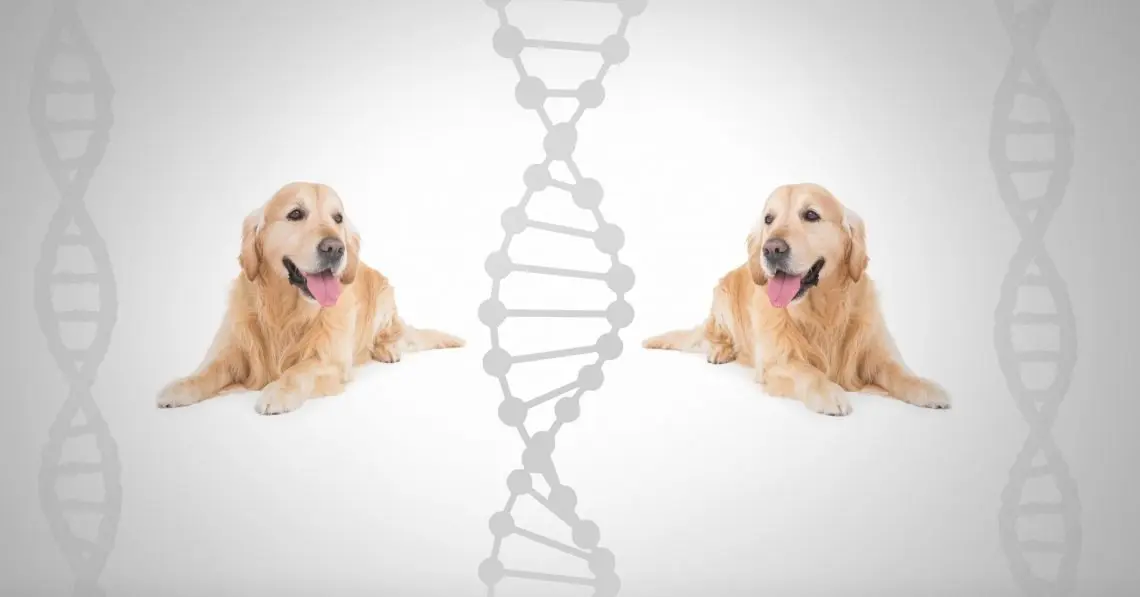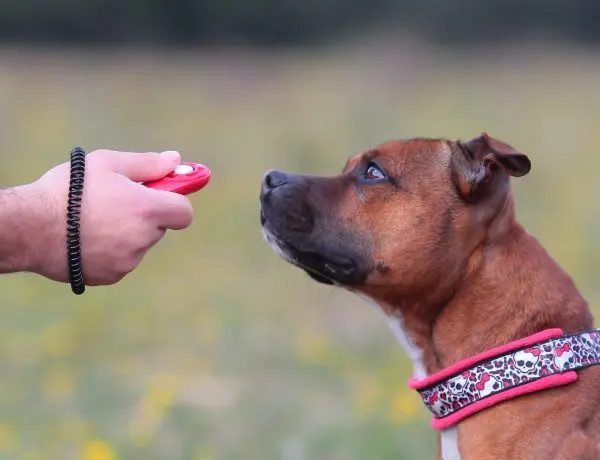You may have read lately about getting your dog DNA tested. The popularity has increased recently, as well as the reasons people may have for doing so. While there are many valid reasons for wanting to get a test, I wanted to know if you can use a DNA test on your dog to determine whether it is purebred or not. Here is what I found out.
DNA Tests are designed to verify the parentage of the dog, how closely they match the genetic signature of a breed, or some possible health issues for the dog. DNA tests cannot directly determine whether or not your dog is purebred.
While they may not be able to verify directly, there are other ways in which they can help to ascertain the dog’s lineage. There are also many other useful reasons for getting a DNA test done that you may wish to consider.
Table of Contents
DNA Testing Your Dog To Determine if it is Purebred

So while no DNA test can determine with any certainty that your dog is, or is not, purebred, they can verify the parentage of the dog. Having the dogs’ registration on file through the AKC, UKC, CKC, etc. and the registration and DNA samples of the parents, tests can be used to determine that they were indeed the sire and the dam of that dog.
You can go back for as many generations as the DNA has been recorded. Unfortunately, at this point, that is ordinarily not very many. After this, you may have to take the breeder’s word for it and hope that the dogs were bred to who they say they were – and that the registrations were filled out accurately at the time.
So what is the reason that DNA tests can’t confirm that a dog is, in fact, a purebred dog?
DNA is extremely complex and contains a lot of genetic information. Rather than mapping out every single bit of the DNA, which would be extremely time consuming and expensive, they look at specific markers within that genetic makeup that have been found to be most prevalent for dogs within that breed.
Genetic markers simply mean specific or unique sequences used to identify a chromosome, which can then be used to ‘line up’ other sequences to make a comparison of the overall structure more manageable.
Once there is a baseline sample of traits consistent within the samples taken of that breed, a profile is assigned to it. Now when you send in your dogs’ DNA, the lab checks it to see which breed profiles it most closely matches.
There are a few good things about this methodology, and then there are also a few inconsistencies that could arise from it. The good parts are that if they took a broad enough sampling of dogs within that specific breed, they would have a reasonably accurate representation of the genetic makeup that defines that breed. Another plus is that it gives them a more readily available comparison chart that also may make testing faster, which lowers the cost of doing so.
While a basic explanation, this is how most genetic testing is done when you purchase kits, whether canine, human, or otherwise. The downside to this is that they are basing their assumptions on data sets that may have a certain degree of variance within the accuracy.
Meaning if you have a German Shepherd Dog, for instance, that can trace its parentage back to Australia, and all of their data on German Shepherd Dogs that make up their profile is from tests that were done on that breed in America, the markers may differ. In essence, it may not say that your dog is 100% German Shepherd Dog, even if it is. The variance could be caused by their profile being different, but it could also be due to something called genetic drift, or some other variables such as cross-breeding. Several pure breeds have needed to be cross-bred throughout history and were done in order to help with health issues present in the breed, and for an overall continuation of that breed.
So going forward, it is noteworthy to keep in mind that even if your dog is purebred, the results of the test may not return as being 100% purebred. The same can be said vice-versa as well.
Where DNA tests shine the most, in my opinion, is with the additional information you can glean from them. Depending on which organization you elect to go through for your dog’s DNA analysis and which package you purchase from them – you may discover many other exciting or pertinent things about your dog that could come in handy. Some of which may include seeing the heritage behind your breed, finding out potential health risks your dog carries with them, and finding out the different breeds that make up your dog, if it is a mix.
Are Dog DNA Tests Accurate?
The accuracy of the DNA tests depends a lot upon which company or organization you choose to use. The extensiveness of their database (the number of different breeds they test against, and how many different dogs within each breed that they used to establish their baselines) has a profound impact on their summation of the results. How many genetic markers they use in the profiling of your dog’s DNA, can contribute to the accuracy as well.
Another thing that potentially could damage the accuracy of a test is the condition of your dog’s mouth when you swab it for a sample. The inside of a dog’s mouth will commonly carry a relatively high amount of bacteria in it, which could potentially cause the sample to begin to deteriorate before the lab you send it to has a chance to run their tests on it.
A simple rule on the accuracy of the tests is that you get what you pay for. The larger their database is, the more markers they test for, and the more work they have put behind their statistical modeling, the higher the cost (as well as accuracy) will be in general.
What is the Most Accurate Dog DNA Test?
Looking at the more popular testing companies out there (Wisdom Panel, Embark, and DNA My Dog), they all claim to be the most accurate test available varying between 95-99% accuracy.
So which is the most reliable? Well, that depends on what you want to test for.
If you’re going to test for medical issues your dog may be at risk for, Wisdom Panel will test for the most, closely followed by Embark. If you’re going to test DNA for breed makeup, all three of those companies can do that, but they each have a list of different breeds that they test for. Depending on the breed or mixes of breeds that you believe are present in your dog, you may want to compare each companies list of breeds they are able to test for. Make sure they can test for the breeds that you believe to be present in your dog’s lineage.
Here is a chart for better reference for their databases.
| DNA Testing Company | Cost of Test | # of breeds | Genetic Health Tests Done | Genetic Markers Used |
| Embark | $129-199 | 250+ | 175 ($199 version for health test) | 200,000+ |
| Wisdom Panel | $99-159 | 350+ | 180+ ($159 version for health test) | 1,800 |
| DNA My Dog | $69-189 | 97 | 100 (If getting the $140-189 packages) | n/a |
Each company name in the table is a link to that companies site if you want to see which company would have your breed in their database.
Can I Use a DNA Test to Get Papers for My Dog?
No, you cannot use a DNA test as proof that a dog is purebred, nor can you use it to register your dog – at least not with any reputable registry.
Reputable registries will still require documentation of their pedigree. The exception to this might be if you are using the test to prove that your dog did indeed come from a certain sire and dam that have been previously registered with that kennel club, be it AKC, UKC, etc., but you would need to check with each organization to be sure what their rules are.
How Much Does it Cost to Get a DNA Test For My Dog?
As of the time of writing this, tests typically cost $69.00-199.00 dollars. Some tests may be higher, depending on the company and what you want to test for. For most purposes that you may want to DNA test your dog for, you should expect to spend around 150 dollars for a test done with a mouth swab.
The price for testing with a blood sample will cost more, depending on the amount the veterinarian charges you and the shipping on the sample. Generally, you will need to overnight the blood sample.
Will a DNA Test Show What Breeds My Dog is Mixed With?

A DNA test can show the breeds that make up your dog with varying degrees of accuracy. If the genetic markers present in your dog are ones that the company has an extensive library of from a significant sample of that breed, it can be reasonably accurate in determining the genetic background of your dog.
Every DNA test company out there claims to give results with up to 99% certainty, but that is only based upon their database. So while it can give you a reasonably accurate representation, no DNA test is 100% accurate and should be used instead to provide yourself with a general idea.
Is a Dog DNA Test Worth it?
If getting a DNA test on your dog is worth it depends on why you want one in the first place. If you’re curious about your dogs’ lineage, traits, or possible medical concerns, it may be worth it.
The one caution on this that I want to make abundantly clear is if you are getting the test to determine potential medical conditions with your dog, it is imperative to go over those with a qualified vet. However, the tests aren’t always accurate in this regard, either.
Using the test as a means for you and your vet to be mindful of possible problems can be a good thing. Treating your dog for something that shows up on the test, when it has no symptoms at all for it, could be a bad thing, in varying degrees – either by wasting money or putting your dog at risk with unnecessary treatments.
Getting a test done for the right reasons can be fun! Learning more about the history of your dog’s ancestors and possibly learning a little bit more about why your dog tends to act in certain ways, can be enlightening!




